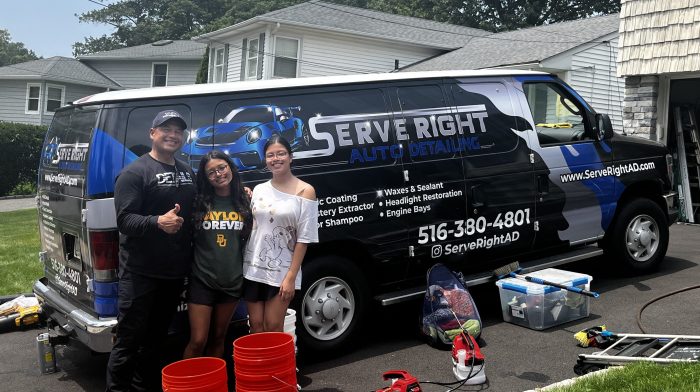
Part one of a two-part series
By Amelia Cardone and Alec Rich
Operating a small business in a Long Island suburb has proven difficult for many new entrepreneurs.
Port Washington
“Costs start to run up really quickly,” said Secrets of Flight Bistro owner Aleksander Betko, whose restaurant, although re-opening in September with a new menu and hours, initially closed after just five months of performance. “Restaurants are very complex and require a lot of resources to operate the way that they need to.”
Large chains, such as Target and TJMaxx, have begun to dominate both the clothing and food industries in Port Washington, taking away business from local ventures. While neither of these establishments are restaurants, they still hold an economic advantage in areas that the untrained eye would overlook.
“A lot of other expenses are directly tied into what you need for your business,” Betko said. “Credit card fees are three-plus percent to the business owner.”
This is only one example of a roadblock that prevents small businesses from thriving in suburban towns, allowing multi-industry enterprises to fill in the gaps where local shops lack. Commercial rates for services, such as electricity and heating can add up quickly before the business have a chance to play catch up. Many available buildings are old and not always up to code, and an owner can find him or herself throwing thousands of dollars into pre-operational expenses, beginning the vicious cycle of debt incurrence.
One of the challenges of opening a business in a small town is that there is not a lot of passthrough traffic, so businesses are competing for the same pool of clientele.
“People don’t always want high class food,” explained Betko. “They want convenience.”
Target’s mission statement for the Port Washington store upholds this decree.
The “Flexible Format” design allows for stores in smaller locations that are meant to serve “densely-populated suburban markets, including groceries, apparel, health and beauty products, home goods, toys and electronics, as well as services, such as mobile and online order pickup.”
This ease, at which large chain stores meet the suburban family’s need for low-priced and straightforward consumerism, is taking its toll on the small businesses of Port Washington, making it harder, with each passing year, to stay open.
Manhasset
Kevin Bordeman, owner of Raindew Family Centers and Pharmacy, said the changing retail landscape and rising rent costs have put many local storefronts out of business. But he said through a combination of customer-oriented service and a “constantly changing format” of available products, Raindew has managed to remain viable for more than 20 years at its Plandome Road location.
“Here, we to try and kill them with kindness and service,” Bordeman said. “We have a lot of people on the floor, always asking, ‘can I help you with anything?’ I think that goes a long way to making the consumer feel comfortable shopping here.”
Along with competition on the internet, larger retail and pharmaceutical chains including CVS and Target have hurt the sales of local businesses. Bordeman said emphasizing the storefront’s role in the community through local advertising has been an important business strategy to combat this trend and allowed the store to learn more about the needs of its consumers.
“Advertising is a key, you have to let them know you’re here and give them what they can’t get on the internet, customer service,” Bordeman said. “We do our own circulars, so it’s just a matter of letting people know about us and to this day, I’ve been in 20 years and people still don’t even know we have a pharmacy.”
By the register in Raindew, customers will also see a sign that emphasizes the importance of supporting local businesses. The sign reads, “When you see something at an independent store that costs a little more, try to remember that Amazon and eBay don’t buy ads in the local football program, Walmart won’t donate prizes to your silent auction and Target doesn’t have kids playing little league in your community, small business owners do and they offer better customer service because they do it face-to-face.”
Town of North Hempstead Councilwoman Veronica Lurvey (District 4), said e-commerce has created a “challenge for local small business” that “will not remain in business without the support of the people who go shopping there.” She said a key point consumers also have to remember about shopping local is the experience that comes with it.
“Certain businesses are able to provide things in a customized way,” she said. “Whether it’s through fittings or the personal touch of a salesperson who knows a lot about what they’re selling, they can give you an experience in the store that you wouldn’t get by sitting in front of the computer.”































